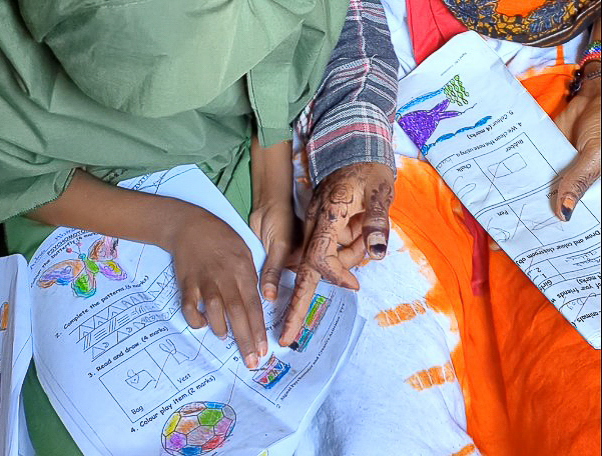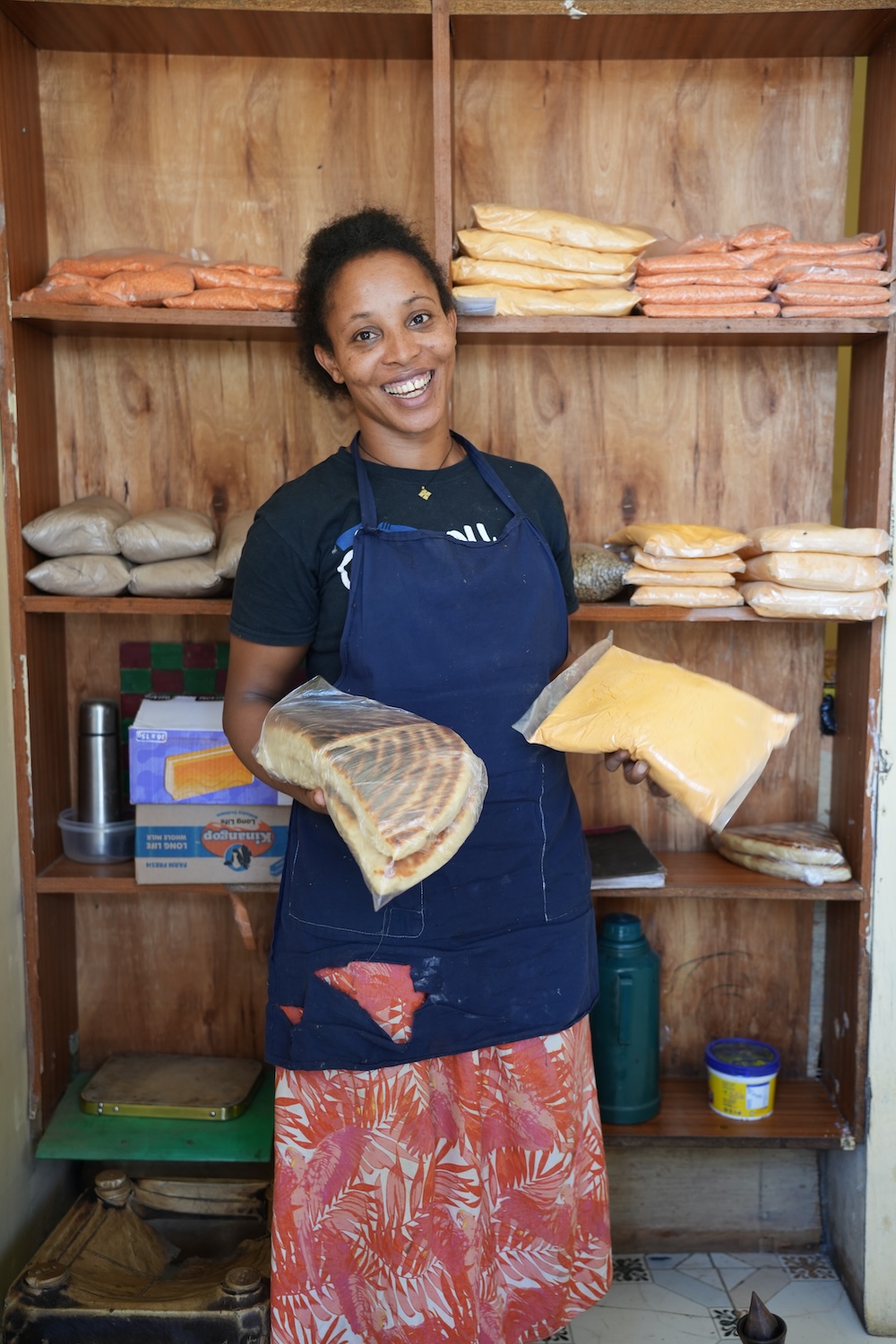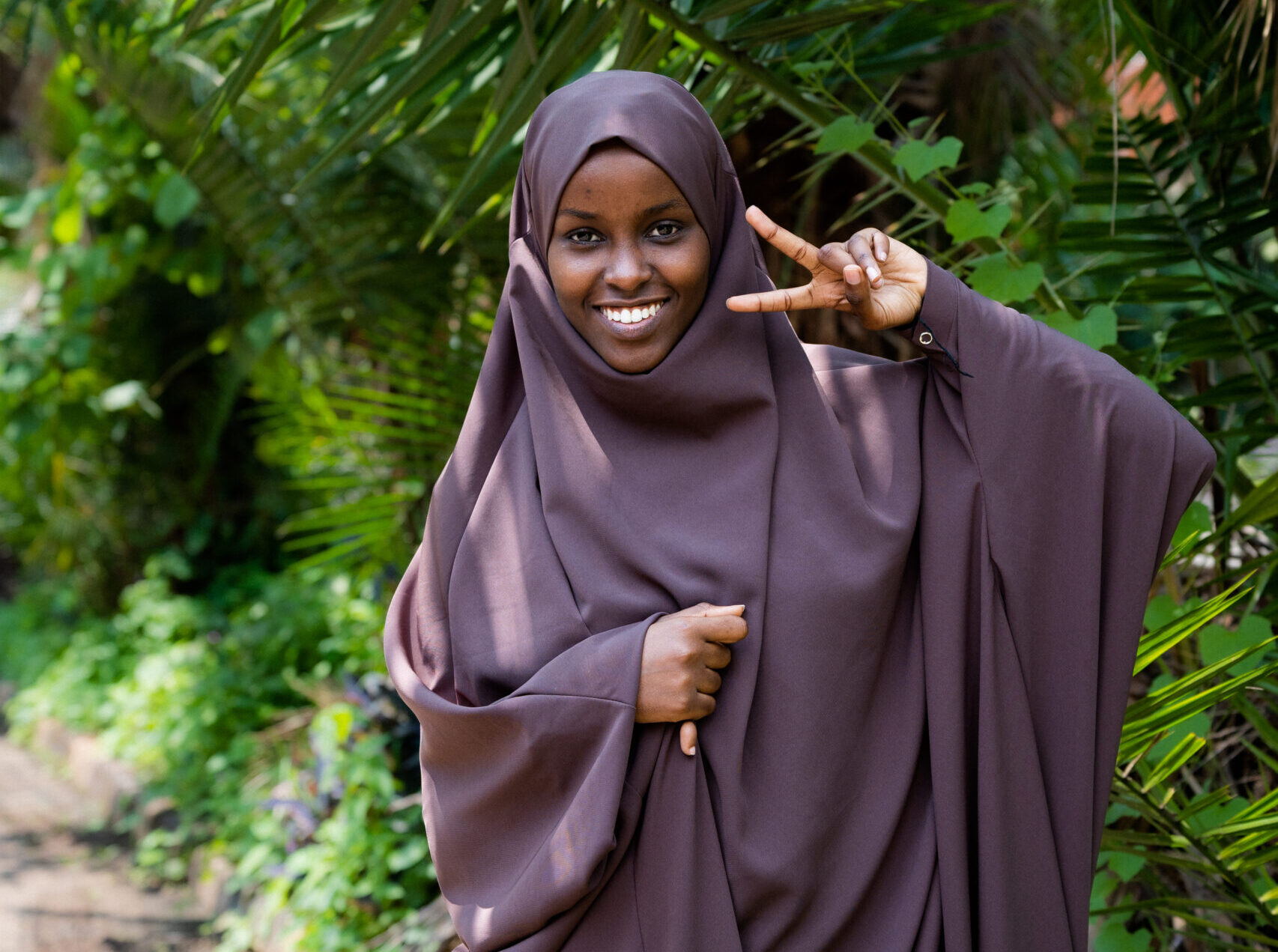
By Martin Anderson, Geneva Representative
For media inquiries, please contact Alexis Felder at felder@refugepoint.org.
In 2018, the United Nations General Assembly endorsed the Global Compact on Refugees, the most significant piece of refugee-related policy in more than 50 years. It led to the creation of the Global Refugee Forum (GRF), a quadrennial meeting of senior humanitarian stakeholders, including heads of state, ministers, non-profit and corporate executives, refugee leaders, researchers, and more.
The first GRF was in 2019. Though it was a significant event at the time, it now seems more like a dress rehearsal for the mammoth undertaking that is the 2023 GRF, happening from December 13-15 in Geneva. In addition to the main program of plenary statements, pledge announcements, parallel high-level events, and a speakers’ corner, there are hundreds of additional “linked events” happening all over town. This is all in addition to the main purpose of the GRF, which is to mobilize stakeholders to make pledges in support of the wide range of activities related to refugee response.
All of the mobilization for the GRF was done through a range of multistakeholder initiatives, and RefugePoint has played a leadership role in every one of these that is important to our work, including: self-reliance in host countries, labor mobility, family reunification, and resettlement.
Self-Reliance
The Refugee Self-Reliance Initiative (RSRI), hosted by RefugePoint, has been the driving force behind one of the most transformational multistakeholder pledges to emerge at this year’s GRF, namely the Economic Inclusion and Social Protection Pledge. It has been joined by dozens of the world’s leading organizations, including several governments, multiple UN organizations, major global coalitions, development actors, and others.
We have planned two distinct but complementary official parallel high-level events at the GRF, one on social protection and one on economic inclusion, which will be moderated by Nasra Ismail, a RefugePoint Board Member. In addition, befitting the leadership role the RSRI has played, Kari Diener, Executive Director of the RSRI, will announce the overall pledge in the plenary session of the GRF on the afternoon of the first day, a timeslot reserved for only the most impactful pledges.
Labor Mobility
The Global Task Force on Labor Mobility has led planning for all things to do with labor mobility at the GRF, and RefugePoint has been a part of the small, core team of stakeholders leading that effort, alongside the governments of Canada, Australia, Talent Beyond Boundaries, and UNHCR. We have helped to mobilize other actors to pledge in support of refugee labor mobility; we have helped to plan the official parallel high-level event on labor mobility at the GRF; and we have played a central role in planning an evening reception on labor mobility, in particular by making important connections with the World Economic Forum and the business community, the target audience for the event. Ms. Ismail will moderate both of these events, and Sasha Chanoff, RefugePoint’s CEO, will speak at them, alongside government ministers, business leaders, and senior officials from the UN and other organizations.
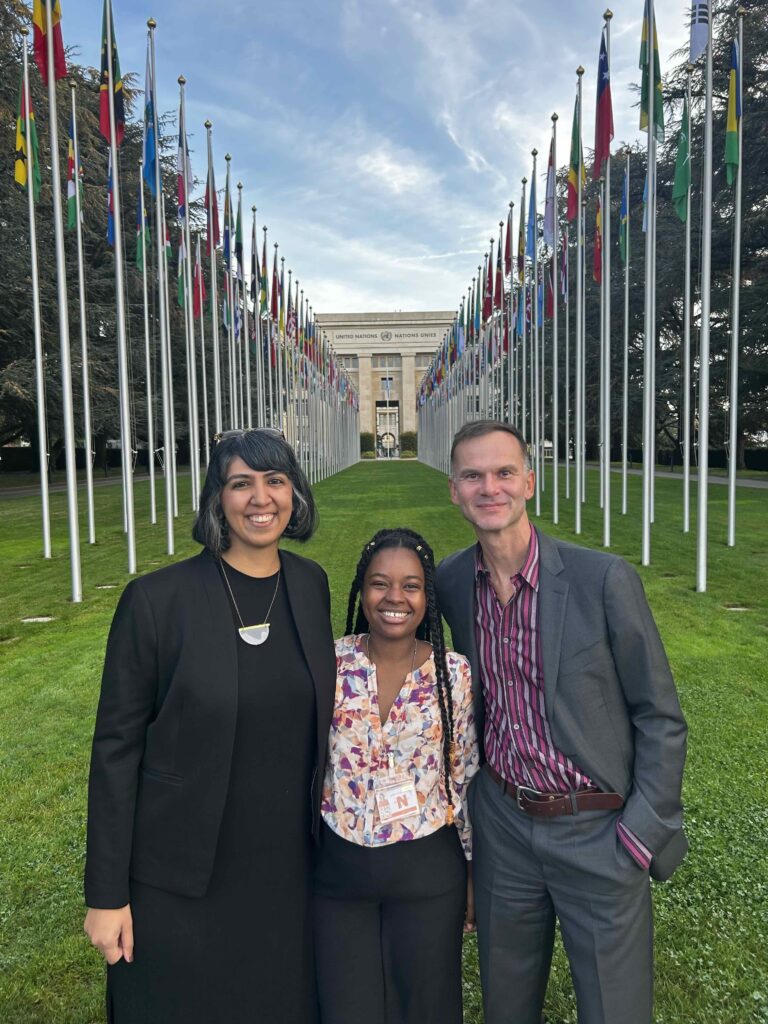
Family Reunification
The multistakeholder initiative on refugee family reunification, responsible for all things related to family reunification at the GRF, has been led by the Global Family Reunification Network. RefugePoint, by virtue of being one of the seven organizations to sit on the network’s Advisory Group and also the sponsor of its Secretariat position within UNHCR, has always been a prominent voice within the network, and that has been no different in the context of the GRF.
We have done much to mobilize stakeholders to join the multistakeholder pledge on family reunification, including acting as co-leads for one of the pledge pillars and hosting the virtual pledge launch event back in October, at which senior leaders from the various pledging organizations announced their enthusiasm to join the pledge. In addition, we have helped to plan an evening reception on family reunification at the GRF, which will take place at the International Red Cross and Red Crescent Museum and will highlight the urgency and importance of refugee family reunification, as well as spotlighting several of the pledges that have been made to advance this cause. We are proud that Geeta Rahimi, a former refugee from Afghanistan and now refugee resettlement professional in the United States, has joined our delegation and will be delivering remarks in the speakers’ corner about her experience with family separation and reunification. Finally, in recognition of the leadership role we have played, RefugePoint has been asked to announce the multistakeholder pledge on family reunification in the plenary session of the GRF, representing all of the many entities globally who have come together in support of refugee family reunification at the GRF.
Resettlement
Our role in elevating refugee resettlement at the GRF has been, arguably, even more critical than for the other initiatives. As recently as the summer, when planning for self-reliance, labor mobility, and family reunification was well underway, there was no similar initiative working on resettlement for the GRF. RefugePoint was instrumental in pointing out this gap and rallying stakeholders to fill it, leading to the creation of the Friends of Resettlement initiative, which has been co-chaired by Australia, RefugePoint, and UNHCR.
Despite the late start, we managed to mobilize dozens of stakeholders to make pledges on refugee resettlement, including the whole range of actors working on the topic. These will be highlighted at the official parallel high-level on resettlement at the GRF, where Sasha will be among the panelists.
Beyond the leadership role we have played in these core features of the GRF, RefugePoint is also participating in other linked events organized by other partners. For instance, Jacob Bonyo, RefugePoint’s Kenya Country Director, is an expert speaker on a panel on refugee self-reliance and durable solutions in East Africa, alongside Mohamed Hassan, a refugee researcher and member of the RSRI’s delegation to the GRF. The linked event is being co-hosted by the RSRI, at the Permanent Mission of Denmark.
Simar Singh, RefugePoint’s Chief Program Officer, will be speaking at a linked event on How Refugee-Led Entities are Advancing Global Solutions. The event, which will take place at the Geneva Impact Hub, is being hosted by several different international networks of refugee-led organizations (RLO), and its theme has connections to RefugePoint’s recent efforts to develop partnerships with RLOs in Kenya and our plans to do so elsewhere through our work on resettlement, family reunification, and labor mobility.
In sum, taking into account all of the roles described above and the months of leadership that went into each of them, RefugePoint will be among the most prominent voices at this year’s GRF. This is of course a beginning and not an end, with much work to be done to capitalize on the many new initiatives and partnerships that have emerged, but this week, while we look ahead, we will also celebrate all that we have achieved this year.

By Martin Anderson, Geneva Representative
For media inquiries, please contact Alexis Felder at felder@refugepoint.org.
In 2018, the United Nations General Assembly endorsed the Global Compact on Refugees, the most significant piece of refugee-related policy in more than 50 years. It led to the creation of the Global Refugee Forum (GRF), a quadrennial meeting of senior humanitarian stakeholders, including heads of state, ministers, non-profit and corporate executives, refugee leaders, researchers, and more.
The first GRF was in 2019. Though it was a significant event at the time, it now seems more like a dress rehearsal for the mammoth undertaking that is the 2023 GRF, happening from December 13-15 in Geneva. In addition to the main program of plenary statements, pledge announcements, parallel high-level events, and a speakers’ corner, there are hundreds of additional “linked events” happening all over town. This is all in addition to the main purpose of the GRF, which is to mobilize stakeholders to make pledges in support of the wide range of activities related to refugee response.
All of the mobilization for the GRF was done through a range of multistakeholder initiatives, and RefugePoint has played a leadership role in every one of these that is important to our work, including: self-reliance in host countries, labor mobility, family reunification, and resettlement.
Self-Reliance
The Refugee Self-Reliance Initiative (RSRI), hosted by RefugePoint, has been the driving force behind one of the most transformational multistakeholder pledges to emerge at this year’s GRF, namely the Economic Inclusion and Social Protection Pledge. It has been joined by dozens of the world’s leading organizations, including several governments, multiple UN organizations, major global coalitions, development actors, and others.
We have planned two distinct but complementary official parallel high-level events at the GRF, one on social protection and one on economic inclusion, which will be moderated by Nasra Ismail, a RefugePoint Board Member. In addition, befitting the leadership role the RSRI has played, Kari Diener, Executive Director of the RSRI, will announce the overall pledge in the plenary session of the GRF on the afternoon of the first day, a timeslot reserved for only the most impactful pledges.
Labor Mobility
The Global Task Force on Labor Mobility has led planning for all things to do with labor mobility at the GRF, and RefugePoint has been a part of the small, core team of stakeholders leading that effort, alongside the governments of Canada, Australia, Talent Beyond Boundaries, and UNHCR. We have helped to mobilize other actors to pledge in support of refugee labor mobility; we have helped to plan the official parallel high-level event on labor mobility at the GRF; and we have played a central role in planning an evening reception on labor mobility, in particular by making important connections with the World Economic Forum and the business community, the target audience for the event. Ms. Ismail will moderate both of these events, and Sasha Chanoff, RefugePoint’s CEO, will speak at them, alongside government ministers, business leaders, and senior officials from the UN and other organizations.

Family Reunification
The multistakeholder initiative on refugee family reunification, responsible for all things related to family reunification at the GRF, has been led by the Global Family Reunification Network. RefugePoint, by virtue of being one of the seven organizations to sit on the network’s Advisory Group and also the sponsor of its Secretariat position within UNHCR, has always been a prominent voice within the network, and that has been no different in the context of the GRF.
We have done much to mobilize stakeholders to join the multistakeholder pledge on family reunification, including acting as co-leads for one of the pledge pillars and hosting the virtual pledge launch event back in October, at which senior leaders from the various pledging organizations announced their enthusiasm to join the pledge. In addition, we have helped to plan an evening reception on family reunification at the GRF, which will take place at the International Red Cross and Red Crescent Museum and will highlight the urgency and importance of refugee family reunification, as well as spotlighting several of the pledges that have been made to advance this cause. We are proud that Geeta Rahimi, a former refugee from Afghanistan and now refugee resettlement professional in the United States, has joined our delegation and will be delivering remarks in the speakers’ corner about her experience with family separation and reunification. Finally, in recognition of the leadership role we have played, RefugePoint has been asked to announce the multistakeholder pledge on family reunification in the plenary session of the GRF, representing all of the many entities globally who have come together in support of refugee family reunification at the GRF.
Resettlement
Our role in elevating refugee resettlement at the GRF has been, arguably, even more critical than for the other initiatives. As recently as the summer, when planning for self-reliance, labor mobility, and family reunification was well underway, there was no similar initiative working on resettlement for the GRF. RefugePoint was instrumental in pointing out this gap and rallying stakeholders to fill it, leading to the creation of the Friends of Resettlement initiative, which has been co-chaired by Australia, RefugePoint, and UNHCR.
Despite the late start, we managed to mobilize dozens of stakeholders to make pledges on refugee resettlement, including the whole range of actors working on the topic. These will be highlighted at the official parallel high-level on resettlement at the GRF, where Sasha will be among the panelists.
Beyond the leadership role we have played in these core features of the GRF, RefugePoint is also participating in other linked events organized by other partners. For instance, Jacob Bonyo, RefugePoint’s Kenya Country Director, is an expert speaker on a panel on refugee self-reliance and durable solutions in East Africa, alongside Mohamed Hassan, a refugee researcher and member of the RSRI’s delegation to the GRF. The linked event is being co-hosted by the RSRI, at the Permanent Mission of Denmark.
Simar Singh, RefugePoint’s Chief Program Officer, will be speaking at a linked event on How Refugee-Led Entities are Advancing Global Solutions. The event, which will take place at the Geneva Impact Hub, is being hosted by several different international networks of refugee-led organizations (RLO), and its theme has connections to RefugePoint’s recent efforts to develop partnerships with RLOs in Kenya and our plans to do so elsewhere through our work on resettlement, family reunification, and labor mobility.
In sum, taking into account all of the roles described above and the months of leadership that went into each of them, RefugePoint will be among the most prominent voices at this year’s GRF. This is of course a beginning and not an end, with much work to be done to capitalize on the many new initiatives and partnerships that have emerged, but this week, while we look ahead, we will also celebrate all that we have achieved this year.
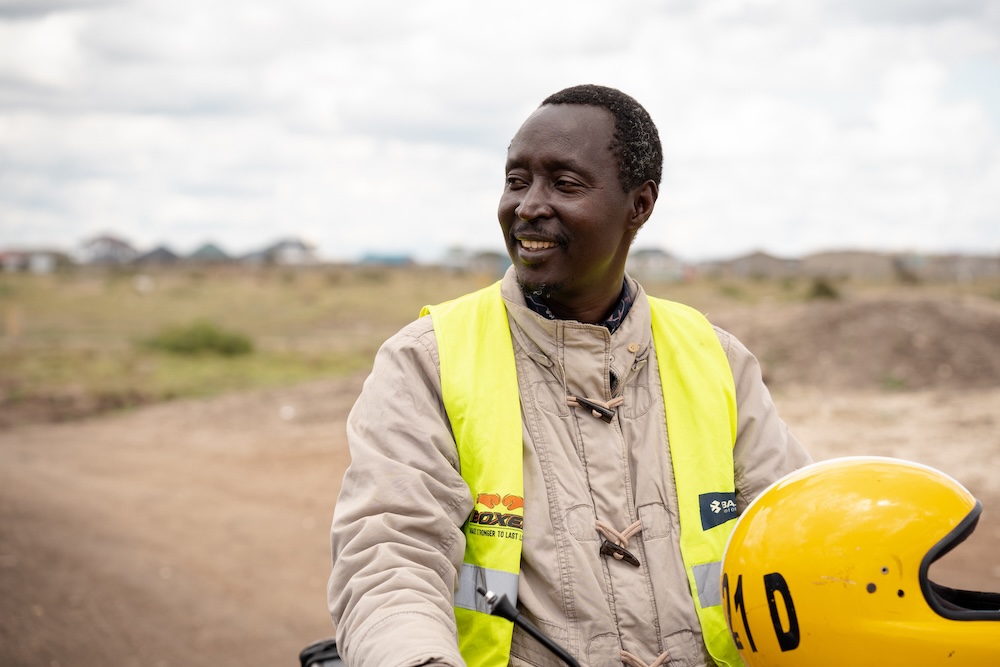
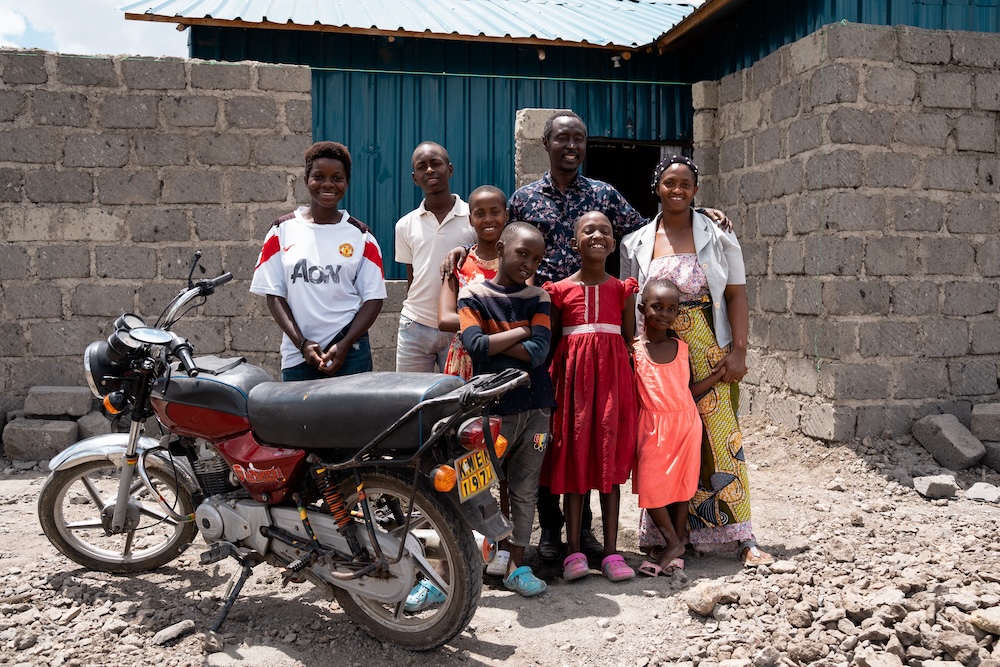 Dieudonne with his family. Photo: Chris Jensen, Nairobi
Dieudonne with his family. Photo: Chris Jensen, Nairobi
 Dieudonne with his family. Photo: Chris Jensen, Nairobi
Dieudonne with his family. Photo: Chris Jensen, Nairobi



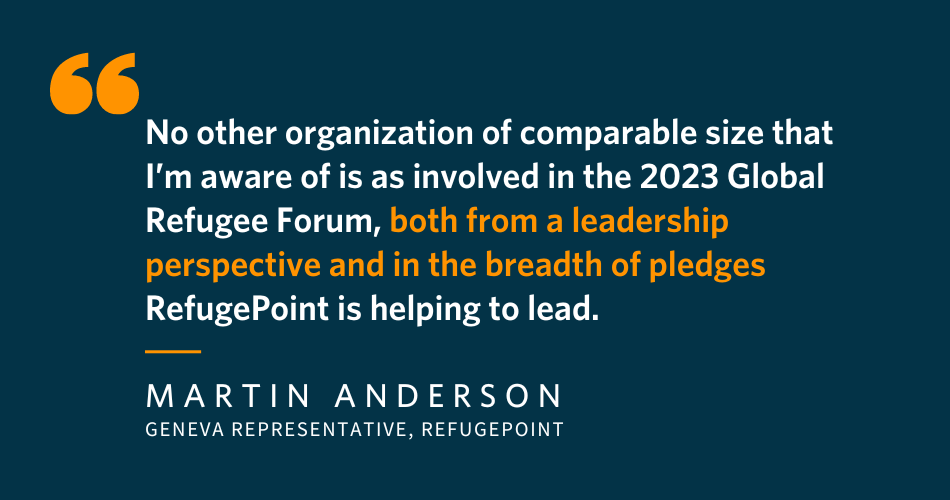
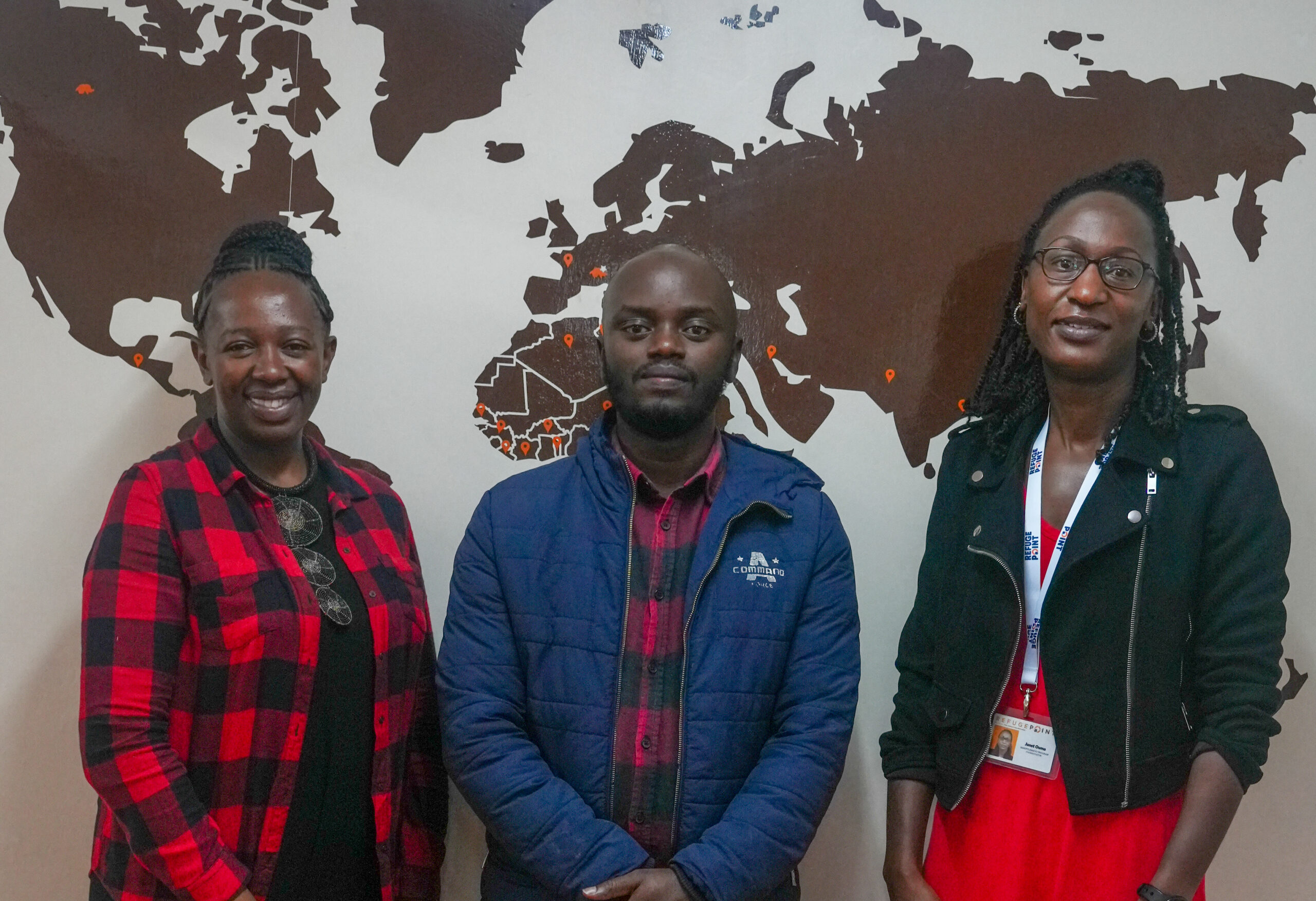

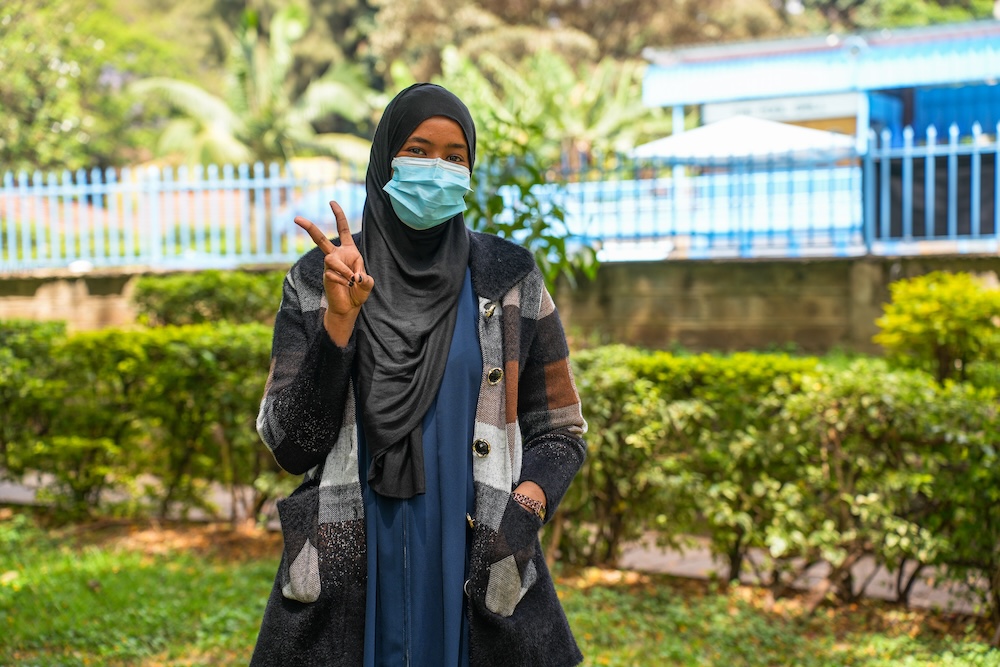 Saido Abdinoor Hassan, one of the candidates who received a job offer in Nova Scotia as a Continuing Care Assistant and departed for Canada in October. Photo: Diana Karua
Saido Abdinoor Hassan, one of the candidates who received a job offer in Nova Scotia as a Continuing Care Assistant and departed for Canada in October. Photo: Diana Karua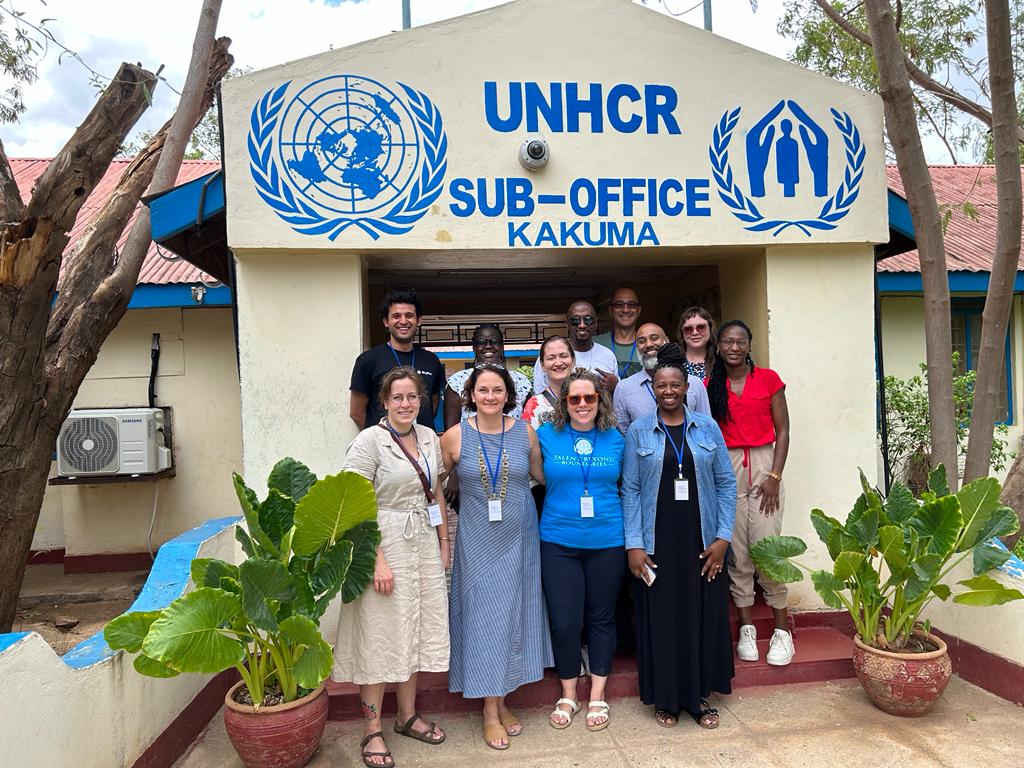 First row (L to R): Jenna Hornsby- RefugePoint, Lara Dyer and Kat Orr – TBB, Sylvia Kamencu – RefugePoint
First row (L to R): Jenna Hornsby- RefugePoint, Lara Dyer and Kat Orr – TBB, Sylvia Kamencu – RefugePoint
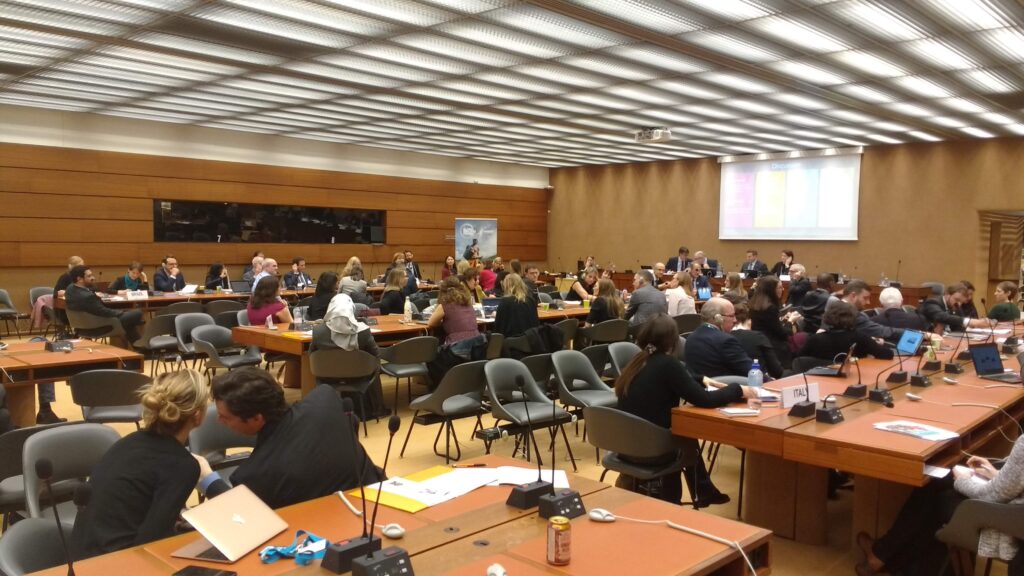 Photo from the 2019 Global Refugee Forum
Photo from the 2019 Global Refugee Forum